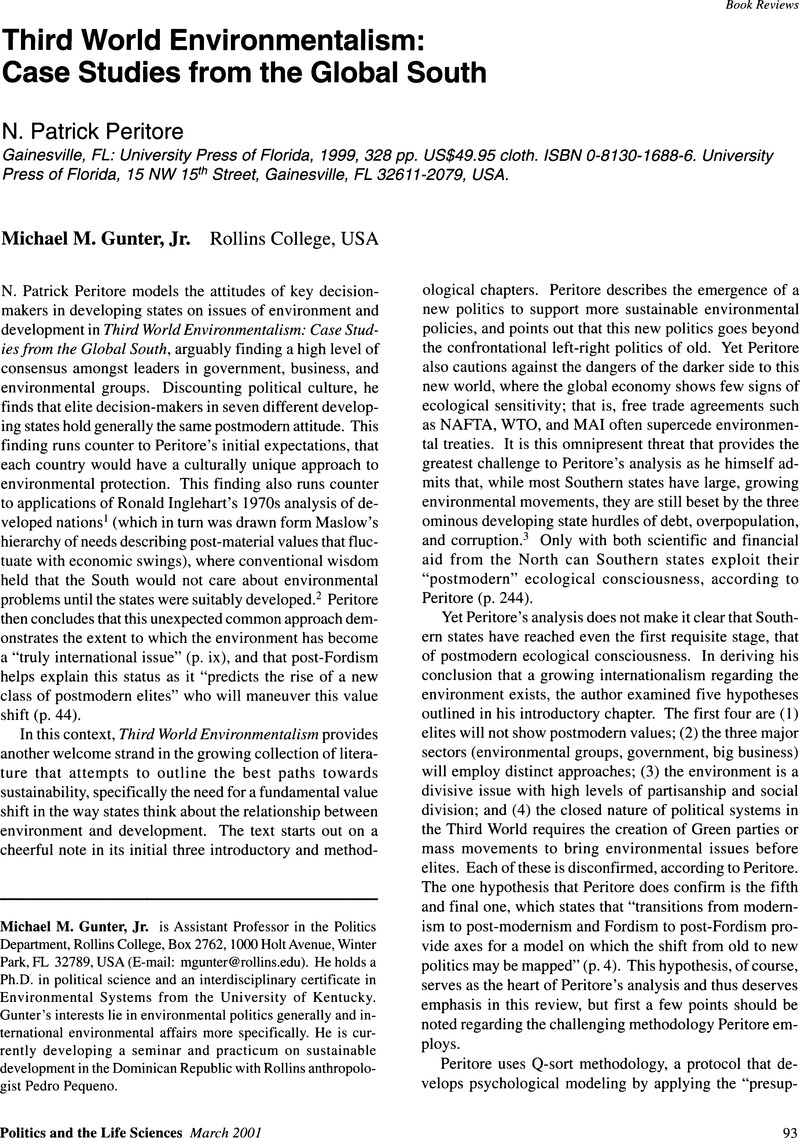Published online by Cambridge University Press: 17 May 2016

1. Inglehart, Ronald. The Silent Revolution. Princeton, J.J.: Princeton University Press, 1977.Google Scholar
2. As Inglehart contended in the first of his two major hypotheses, the scarcity hypothesis, this follows the logic where prosperity leads to increased post-materialism and the ability to care about nonmaterial issues like the environment. The second hypothesis was known as the socialization hypothesis and stated that values reflect pre-adult experiences.Google Scholar
3. Peritore notes that in much of the Southern hemisphere corruption is so rampant that it is considered an expected business cost (p. 75).Google Scholar
4. For example, one elite describes India's fundamental problem as poverty: “But poverty drives us to produce. The West produces for no reason, creates waste for consumerism. But in the Third World, poverty is the main cause of pollution” (p. 84).Google Scholar
5. For that matter, the states where post-Fordists hold considerable sway, Korea and Puerto Rico, are arguably not true Southern states.Google Scholar
6. Throughout the rest of the chapters, this factorial type is referred to as “Cultural Traditionalists.” The study would benefit from keeping this label standardized.Google Scholar
7. Ethnographic studies suggest that this relationship changes when foreigners begin to exploit the local environment for their own purposes; that is, tribal peoples behave unsustainably when outsiders begin enclosing their environment (p. 33).Google Scholar